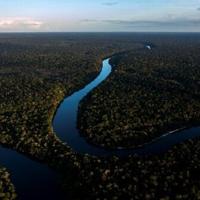Supporters of biodiversity credits see the potential for unlocking much-needed funding for nature, while critics express concerns about potential scandals similar to those seen in other environmental financial approaches.
At the upcoming UN COP16 biodiversity summit in Colombia, the trading of credits in conservation will be a significant topic. The market for biodiversity credits, which monetize activities related to protecting or restoring nature, is still new, unregulated, and faced with challenges related to “greenwashing”.
Potentially, businesses could use credits to compensate for ecological harm caused by their operations. However, ensuring the integrity of these credits – meaning they actually deliver the promised benefits to the environment – is a significant challenge due to the lack of common international standards.
In the past, the voluntary market for carbon credits faced issues when it was revealed that some offsets did not reduce greenhouse gas emissions as intended. However, recent agreements at biodiversity COPs have earmarked significant funding for nature by 2030, with credits being considered as a way to raise the necessary capital.
– Gaining traction –
The upcoming COP16 in Cali aims to boost confidence in biodiversity credits and encourage innovative schemes. The International Advisory Panel on Biodiversity Credits, supported by France and Britain, will present a global roadmap for the sector, promoting strong national credit schemes over international standards.
The Alliance for Biodiversity Credits, with support from the UN and the World Economic Forum, is also working to promote biodiversity credit initiatives. High-profile figures like European Commission president Ursula von der Leyen and Brazilian President Luiz Inacio Lula da Silva have expressed interest in nature credits for conservation efforts.
– Challenges –
Despite the potential benefits, many environmental groups remain cautious about biodiversity credits, fearing that the generated funds may not benefit conservation or indigenous communities. The lack of common international rules for biodiversity credits trade poses a significant challenge compared to discussions around carbon credits.
The unique challenges of biodiversity credits, including the absence of a unified metric, make it difficult to establish a globally-accepted framework. Without a consistent unit of measurement for biodiversity, trading credits becomes complex and may not effectively achieve conservation goals.
mdz-bl/np/eab/tw





